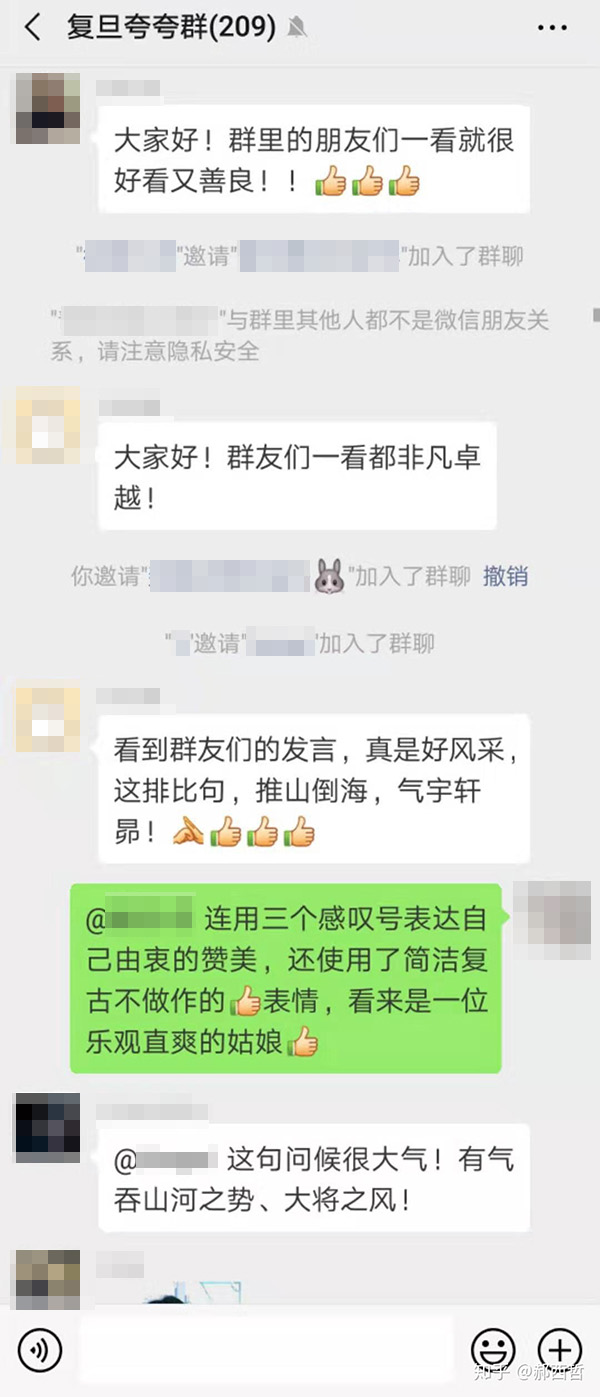夸夸群 prasing groups
Kuakuaqun, or praising groups, on WeChat, where members shower you with over-the-top compliments and positive messages are gaining popularity among college students in China.
“夸夸群”在中国大学生当中日渐风靡,在这种群里,所有成员都会对你送上各种夸张的赞美和鼓励。

【词汇辨析】
Praise和compliment都有“赞扬、表扬”的意思,经常可以互相替换使用,在具体用法上稍有区别。Praise可以用于对某人的成就、行为、性格等方面表示的赞许,比如:Good job at your competition就属于praise。Compliment在夸奖时多侧重某个具体方面,比如:Your hair looks nice today就是一句compliment,有时我们也翻译为“恭维”。
Some college students in praising groups said that the fad’s latest incarnation is about more than just vanity — it’s also an outlet for users to practice kindness and support each other.
有些高校“夸夸群”的学生表示,这个风潮的兴起并不只是表现浮夸,更是群成员表达善意,相互支持的举动。
对于“夸夸群”风靡高校的现象,有社会学专家表示,学生求夸的心态,表明生活中缺少激励,“年轻一代想通过这种方式,疏解个人情绪,包括压力或其他情绪。”
Chen Kan, an associate professor in Fudan University’s psychology department, said that the praising chat groups have gone viral because they “meet a lot of psychological needs” for students seeking company, self-confidence, or flattery.
复旦大学心理学系副教授陈侃表示,“夸夸群”之所以会风靡是因为其“满足了学生们寻求陪伴、自信或者恭维的心理需求”。
“夸夸群”除了在高校火热以外,还有电商平台商家推出了“夸人服务”。
Users can purchase memberships to such groups on e-commerce platforms like Taobao for anywhere from 0.6 yuan to 188 yuan. Once admitted, members can receive flattering comments from each other and even request to be complimented on specific things.
用户可以在淘宝等电商平台上购买“夸夸群”会员服务,价格从0.6元到188元不等。入群之后,成员们就会收到各种赞美之词,还可以指定某件事或某个方面被夸。
虽说,夸奖的话每个人都爱听,但是听多了也可能会起到反作用。
Chen also warned that anyone giving or receiving praise in such groups should be cautious. “The biggest risk is the constant emphasis on the ‘false self,’ [which] makes it harder to see the ‘true self,’” she said.
陈侃提醒说,在“夸夸群”里不管夸人还是被夸都应该当心。“最大的危险就是,不断强调‘虚假的自我’可能会让人更加难以看清‘真实的自己’。”

